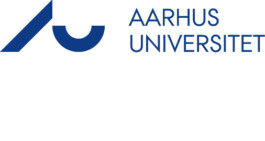
Tracing conceptions of global inequality in the writings of George Ayittey and Kwesi Kwaa Prah
⬤ Research diary by Mélanie Lindbjerg Guichon, 28th May 2021
Another milestone has been reached in our global inequality research project, as well as in my own academic adventures, as I have now published my first academic article “(Black) neo-colonialism and rootless African elites: tracing conceptions of global inequality in the writings of George Ayittey and Kwesi Kwaa Prah, 1980s–1990s” with Intellectual History Review. Below you will find a short recap of the aim and purpose of the article. In case you are interested in reading it, you can access the online version via the links provided at the bottom of this page.
Short summary
In the article, I examine two Ghanaian-born intellectuals – liberal economist George Ayittey and Marxist-inspired anthropologist and sociologist Kwesi Kwaa Prah – and their positions on local and global inequalities, and I do this by studying their writings from the mid-1980s–1990s. The article answers the questions of how and through which debates both intellectuals addressed and engaged with notions of global inequality. Methodologically anchored in global intellectual history, the article offers a historical, qualitative, and actor-oriented study. As has been emphasised by intellectual historian of eastern Africa Jonathon Earle (2018, para. 45), the question of how African intellectuals have shaped the intellectual history of the modern world represents an understudied field within global intellectual history. In an attempt to address this void, in this article, I show how Ayittey and Prah both actively invoked global inequalities however in diverse way through different notions of neo-colonialism as well as criticisms of local African elites. I argue that their conceptions of global inequalities were hinged on broader debates about African (under)development while their proposed solutions were founded on notions of African indigeneity, drawing on earlier African thought. Both critiqued the indigenous rootlessness of local elites but offered rather different solutions to the concurrent development crisis. Both reused earlier ideas – as ideas are always ‘patched together’ (Boele van Hensbroek, 1999, p. 4) – of indigenous development as formulated by Gold Coast intellectual Joseph E. Casely Hayford (1866–1930) in the beginning of the twentieth century. In sum, the article provides a window into the Ghanaian intellectual history of an unequal world. It unfolds how conceptions of global inequalities were woven into discourses and vocabularies of development during and in the aftermath of a period that saw the economic collapse of almost all African countries: a period were State-led modernisation programmes and spectacles (Bloom et al., 2014), promoted and performed by early postcolonial African leaders, seemed to have “failed” in delivering the promised development.
References
Bloom, Peter J., Stephan F. Miescher, and Takyiwaa Manuh. Modernization as Spectacle in Africa. Bloomington: Indiana University Press, 2014.
Boele van Hensbroek, Pieter. Political Discourses in African Thought: 1860 to the Present. Westport, CT: Praeger, 1999.
Earle, Jonathon. “African Intellectual History and Historiography.” Oxford Research Encyclopedia of African History (2018). https://doi-org.ez.statsbiblioteket.dk:12048/10.1093/acrefore/9780190277734.013.305.
Links
If you have access to the Royal Danish Library (det klg. bibliotek), the article can be accessed via the following link:
https://soeg.kb.dk/permalink/45KBDK_KGL/1f0go08/cdi_crossref_primary_10_1080_17496977_2021_1913390
Otherwise, please use the following link:
https://www.tandfonline.com/eprint/G9UXKPKCAQKNSYAM4K96/full?target=10.1080/17496977.2021.1913390
I hope you enjoy reading the full article, and please do not hesitate to contact me if you have any questions or want to share ideas and thoughts.
You can reach me at: mlg@cas.au.dk
Best wishes,
Mélanie
PhD student on the global inequality project
For more information visit my personal webpage
The research for this article has been funded by Independent Research Fund Denmark as part of the research project “An Intellectual History of Global Inequality, 1960–2015”.

Tracing conceptions of global inequality in the writings of George Ayittey and Kwesi Kwaa Prah
⬤ Research diary by Mélanie Lindbjerg Guichon, 28th May 2021
Another milestone has been reached in our global inequality research project, as well as in my own academic adventures, as I have now published my first academic article “(Black) neo-colonialism and rootless African elites: tracing conceptions of global inequality in the writings of George Ayittey and Kwesi Kwaa Prah, 1980s–1990s” with Intellectual History Review. Below you will find a short recap of the aim and purpose of the article. In case you are interested in reading it, you can access the online version via the links provided at the bottom of this page.
Short summary
In the article, I examine two Ghanaian-born intellectuals – liberal economist George Ayittey and Marxist-inspired anthropologist and sociologist Kwesi Kwaa Prah – and their positions on local and global inequalities, and I do this by studying their writings from the mid-1980s–1990s. The article answers the questions of how and through which debates both intellectuals addressed and engaged with notions of global inequality. Methodologically anchored in global intellectual history, the article offers a historical, qualitative, and actor-oriented study. As has been emphasised by intellectual historian of eastern Africa Jonathon Earle (2018, para. 45), the question of how African intellectuals have shaped the intellectual history of the modern world represents an understudied field within global intellectual history. In an attempt to address this void, in this article, I show how Ayittey and Prah both actively invoked global inequalities however in diverse way through different notions of neo-colonialism as well as criticisms of local African elites. I argue that their conceptions of global inequalities were hinged on broader debates about African (under)development while their proposed solutions were founded on notions of African indigeneity, drawing on earlier African thought. Both critiqued the indigenous rootlessness of local elites but offered rather different solutions to the concurrent development crisis. Both reused earlier ideas – as ideas are always ‘patched together’ (Boele van Hensbroek, 1999, p. 4) – of indigenous development as formulated by Gold Coast intellectual Joseph E. Casely Hayford (1866–1930) in the beginning of the twentieth century. In sum, the article provides a window into the Ghanaian intellectual history of an unequal world. It unfolds how conceptions of global inequalities were woven into discourses and vocabularies of development during and in the aftermath of a period that saw the economic collapse of almost all African countries: a period were State-led modernisation programmes and spectacles (Bloom et al., 2014), promoted and performed by early postcolonial African leaders, seemed to have “failed” in delivering the promised development.
References
Bloom, Peter J., Stephan F. Miescher, and Takyiwaa Manuh. Modernization as Spectacle in Africa. Bloomington: Indiana University Press, 2014.
Boele van Hensbroek, Pieter. Political Discourses in African Thought: 1860 to the Present. Westport, CT: Praeger, 1999.
Earle, Jonathon. “African Intellectual History and Historiography.” Oxford Research Encyclopedia of African History (2018). https://doi-org.ez.statsbiblioteket.dk:12048/10.1093/acrefore/9780190277734.013.305.
Links
If you have access to the Royal Danish Library (det klg. bibliotek), the article can be accessed via the following link:
https://soeg.kb.dk/permalink/45KBDK_KGL/1f0go08/cdi_crossref_primary_10_1080_17496977_2021_1913390
Otherwise, please use the following link:
https://www.tandfonline.com/eprint/G9UXKPKCAQKNSYAM4K96/full?target=10.1080/17496977.2021.1913390
I hope you enjoy reading the full article, and please do not hesitate to contact me if you have any questions or want to share ideas and thoughts.
You can reach me at: mlg@cas.au.dk
Best wishes,
Mélanie
PhD student on the global inequality project
For more information visit my personal webpage
The research for this article has been funded by Independent Research Fund Denmark as part of the research project “An Intellectual History of Global Inequality, 1960–2015”.

